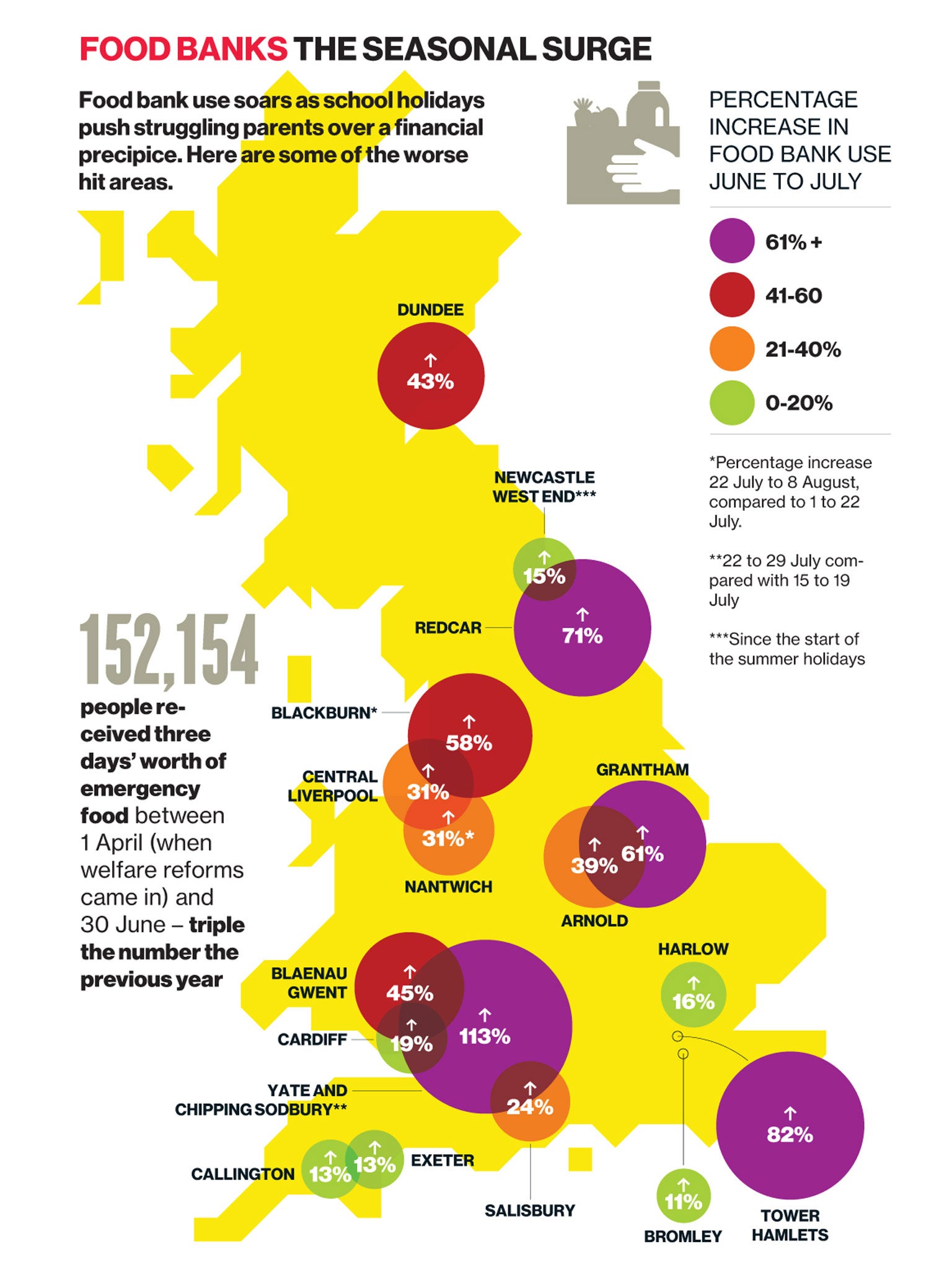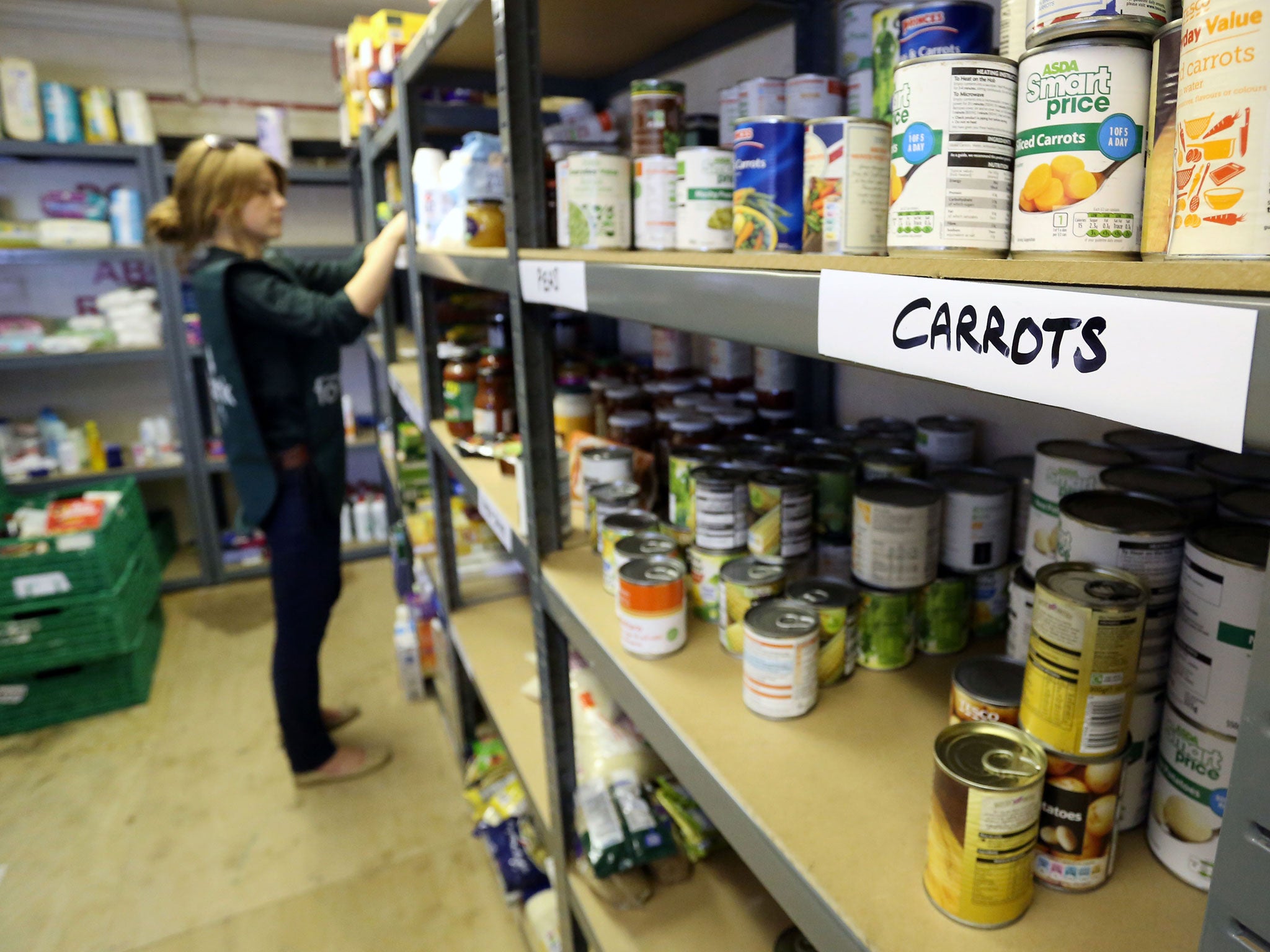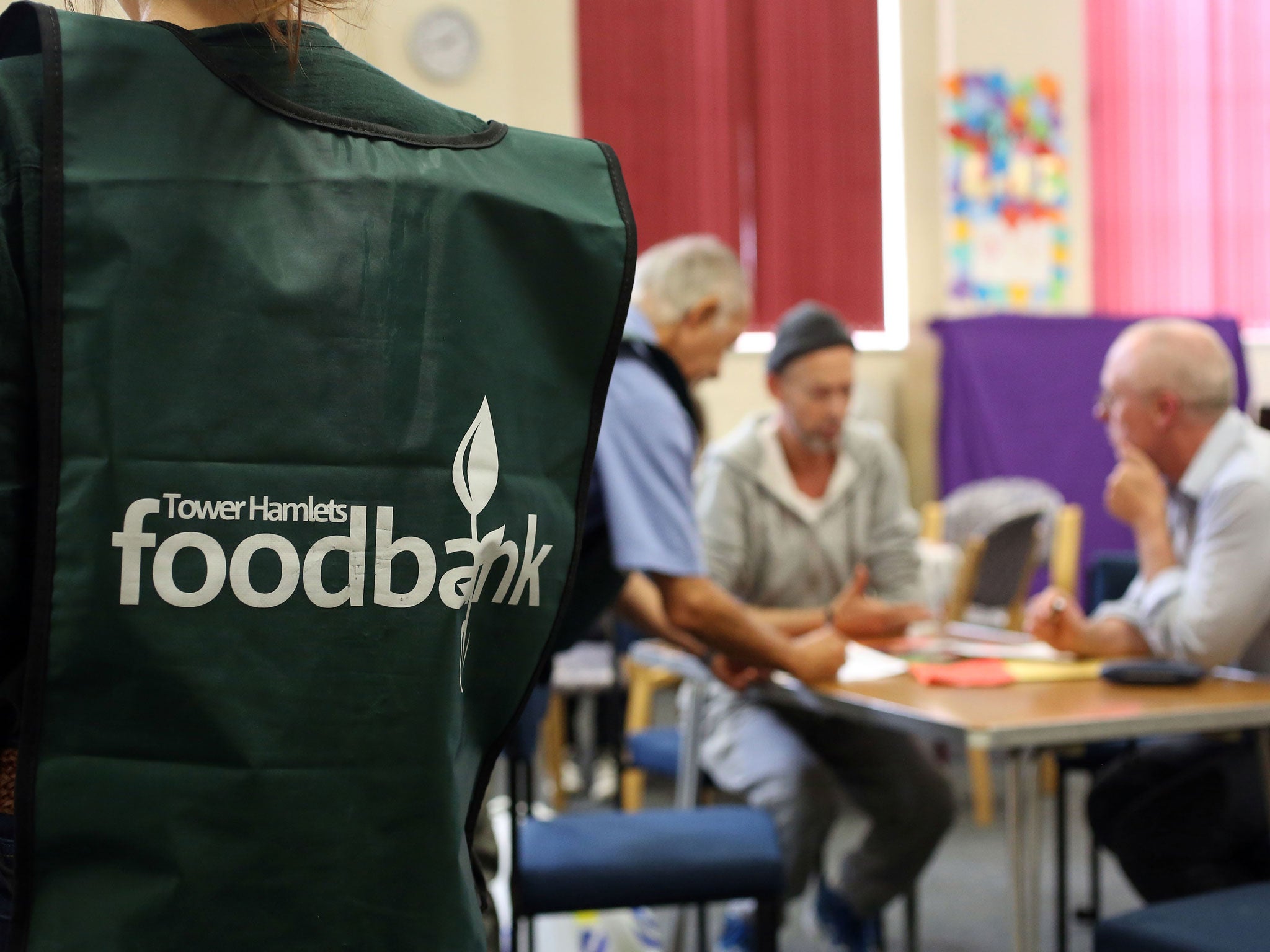Summer of hunger: Huge rise in food bank use as demand linked to 'welfare reform'
Trust running country’s largest network says some branches have had double the number of requests for emergency parcels since start of school holidays

Your support helps us to tell the story
From reproductive rights to climate change to Big Tech, The Independent is on the ground when the story is developing. Whether it's investigating the financials of Elon Musk's pro-Trump PAC or producing our latest documentary, 'The A Word', which shines a light on the American women fighting for reproductive rights, we know how important it is to parse out the facts from the messaging.
At such a critical moment in US history, we need reporters on the ground. Your donation allows us to keep sending journalists to speak to both sides of the story.
The Independent is trusted by Americans across the entire political spectrum. And unlike many other quality news outlets, we choose not to lock Americans out of our reporting and analysis with paywalls. We believe quality journalism should be available to everyone, paid for by those who can afford it.
Your support makes all the difference.Food banks across Britain are being inundated with requests for emergency meals as families struggle to feed their children through the school holidays.
The Trussell Trust, which runs the country’s largest network of food banks, says this is the busiest summer it has ever experienced, with some of its branches seeing double the number of requests for emergency parcels since the start of the holidays.
Parents whose children ordinarily receive free school lunches are among those struggling the most, as they now have to find an extra meal every day. The trust says the situation is worse than last summer because of rising food prices – which despite falling slightly in the latest Government figures are more than 4 per cent higher than last year – and the impact of the Coalition’s welfare changes that were launched in April.
A lag in data collection means that complete national statistics are not yet available, but snapshot figures from 18 food banks around the country show that all have seen demand rise during the summer break. In Grantham, Lincolnshire, for example, the food bank gave parcels to 219 people in July, a 61 per cent increase on the previous month. In Redcar, Teesside, the increase from June to July was 71 per cent, while Dundee’s food bank gave out 538 food parcels in July, a 43 per cent increase on June.
The free food is only given out to those whose situation is critical and who are referred to the trust by frontline workers such as doctors, social workers and Citizens Advice Bureaux.

Chris Mould, executive chairman of the Trussell Trust, said: “This is the busiest summer we’ve had. If people are on low incomes and they’re struggling to cope with price increases and making ends meet, if you remove one of the supports they have – like when their children don’t get free food – they’re instantly in difficulty. One of the things that is concerning us is the increasing proportion of people coming to us because of operational failures in the welfare system. We see a lot of people who’ve had their benefit sanctioned in ways which, on the face of it, seem inappropriately punitive. We meet people who’ve had their benefits stopped because they were late for an appointment.”
In Tower Hamlets, east London, which has the highest proportion of pupils on free school meals in the country, the change is dramatic. In June it gave 111 people emergency food but by July that figure was 202, while 107 people came last week alone.
Lindsay Judge, senior policy adviser for Child Poverty Action Group, said: “It’s a national scandal that more families are being referred to food banks in the summer holidays – a time when children should be having fun and parents should be enjoying life. It shows that something has gone badly wrong with the safety net in this country as welfare reform has taken away the protection a social security system is supposed to provide.”

The number of parcels handed out at Yate and Chipping Sodbury food bank in Gloucestershire more than doubled in the first week of the summer holidays. In Salisbury, Wiltshire, the number of donations went up by a quarter from 290 in June to 359 in July, while Blackburn has seen a 58 per cent increase in demand in the last fortnight alone. In response it has had to open a special summer holiday distribution centre.
Stephen Timms, the shadow minister for employment, said: “These figures tell you a great deal about this Government. David Cameron is in denial about the scale of the hardship which food banks represent. He has given millionaires a tax cut, while thousands of parents struggling to make ends meet have had no help at all.”
Lynda Battarbee, North-west development officer for the Trussell Trust, said: “The need here has doubled. Anecdotally this does seem to be to do with welfare reform – for some, the bedroom tax and other changes have pushed them over the edge. We’ve had lots of families whose kids don’t want to leave school because they know they’ll go hungry.”
Even before the holidays started, welfare reforms were having a noticeable impact on the need for urgent help with meals. Between 1 April, when many of the benefit changes came in, and 30 June, 152,154 people received three days’ worth of emergency food, which was triple the number who needed it last year. But this surge over the last few weeks shows that for some families, the holidays have been the final straw.
A DWP spokesman said: “The benefits system supports millions of people who are on low incomes or unemployed and there is no evidence that welfare reforms are linked to increased use of food banks.”
But the Trussell Trust points out that the number of people referred due to problems with benefits has soared; eight years ago, the proportion going to their food banks for this reason was 20 per cent; now it is 52 per cent.
Join our commenting forum
Join thought-provoking conversations, follow other Independent readers and see their replies
Comments